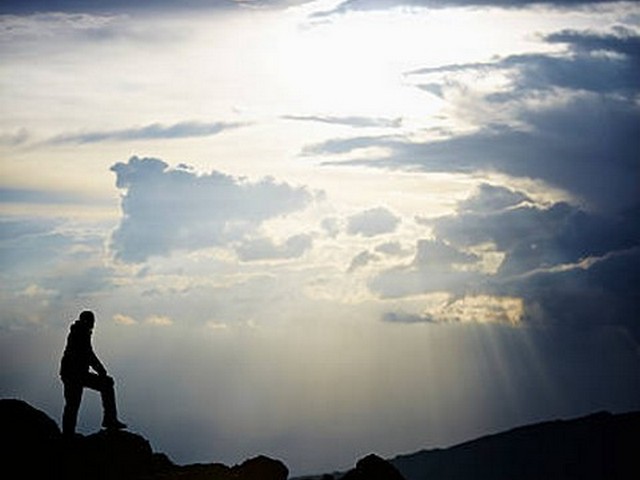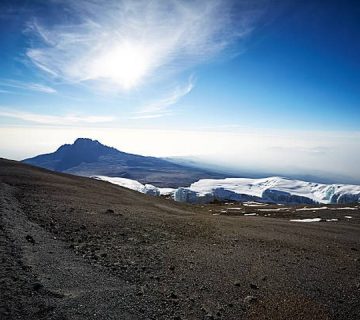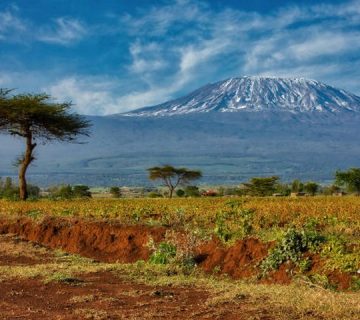What To Do If You Feel Unwell During Your Kilimanjaro Trek
Embarking on a trek up the majestic Mount Kilimanjaro is an exhilarating experience that draws adventurers from all corners of the globe. At the Kilimanjaro Centre for Trekking and Ecotourism (KCTE), we understand that climbing to the roof of Africa is a dream for many. However, the journey to the summit is not without its challenges, particularly when it comes to health. Feeling unwell during your trek can be a daunting prospect, but with the right knowledge and preparation, you can manage the situation effectively and safely. Let’s explore the essential steps and preventative measures to ensure that your Kilimanjaro adventure remains memorable for all the right reasons.
Understanding the Risks: Why Health Matters on Kilimanjaro
Climbing Kilimanjaro involves ascending to high altitudes which can expose trekkers to altitude sickness and other health concerns. Recognizing early signs of health issues and knowing how to respond is crucial. Common ailments include altitude sickness, dehydration, and fatigue. Each of these conditions can manifest with varying degrees of severity but taking proactive steps can help minimize their impact.
Pre-Trek Preparation: The Key to a Healthy Climb
Health Check-ups and Fitness
Before you even set foot on Kilimanjaro, a thorough physical examination by a healthcare provider is a must. Ensure your body is well-prepared for the demands of high-altitude trekking. Additionally, engaging in a fitness regime that includes cardiovascular, strength, and endurance training can significantly boost your physical readiness.
Understanding Altitude Sickness
Altitude sickness is a common concern. Educate yourself about its symptoms such as headache, nausea, dizziness, and fatigue. Being able to recognize these early signs can make a substantial difference in how effectively you manage them.
On the Trail: Immediate Steps if You Feel Unwell
Listen to Your Body
The golden rule while trekking is to listen to your body. Ignoring symptoms can lead to severe health risks. If you feel unwell, immediately inform your guide – at KCTE, our guides are trained to handle such situations with expertise and care.
Stay Hydrated and Nourished
Dehydration can exacerbate health problems on Kilimanjaro. Make a conscious effort to drink plenty of water and eat balanced meals to maintain your energy levels and hydration.
Pace Yourself
Kilimanjaro is not a race. Maintain a pace that feels comfortable and allows you to acclimatize properly to the altitude. ‘Pole pole’ (slowly, slowly in Swahili) is the mantra preached by all seasoned Kilimanjaro guides.
When to Descend: Recognizing Severe Symptoms
Sometimes, despite taking all precautions, you might experience severe symptoms of altitude sickness, such as persistent vomiting, confusion, or difficulty walking. These are signs that you may need to descend to a lower altitude immediately for your safety.
Post-Trek Care: Recovery and Reflection
After your trek, it’s important to allow your body to rest and recover. Reflect on your experience and consider visiting a doctor for a post-trek check-up to ensure that any lingering health issues are addressed.
Why Choose KCTE for Your Kilimanjaro Adventure?
At Kilimanjaro Centre for Trekking and Ecotourism (KCTE), your health and safety are our top priorities. Our expert guides are well-trained in altitude sickness and emergency response protocols to ensure you have a safe and enjoyable experience. Choosing KCTE means opting for a trekking partner who values your well-being as much as the adventure itself.
Frequently Asked Questions (FAQ)
What is the best way to prevent altitude sickness on Kilimanjaro?
The best way to prevent altitude sickness is by acclimatizing properly. This involves a gradual ascent, staying hydrated, eating a balanced diet, and sleeping at a lower altitude than the highest point reached during the day if possible.
Can I take medications to prevent altitude sickness?
Yes, medications like Acetazolamide can help prevent altitude sickness. However, they should only be taken under the guidance of a healthcare provider.
What should I pack for health emergencies on Kilimanjaro?
A basic first aid kit, medications for altitude sickness, painkillers, rehydration salts, water purification tablets, and personal medications are essential items for your trek.
How do I know if I should stop my ascent and descend?
If you experience severe symptoms like difficulty breathing, chest pain, confusion, or inability to walk, it’s crucial to descend immediately and seek medical attention.
Ready for Your Kilimanjaro Adventure?
Feeling confident about handling health challenges on Kilimanjaro? Remember, choosing the right tour operator is just as important as preparing your body for the trek. At Kilimanjaro Centre for Trekking and Ecotourism (KCTE), we’re dedicated to providing you with a safe, memorable, and life-changing adventure on Mount Kilimanjaro. Embrace the challenge and let’s reach the summit together. Visit our website to book your climb and find more valuable resources for a successful trek. See you at the top!
Climbing Kilimanjaro is an experience of a lifetime, and feeling well-prepared can make your journey even more enjoyable. At KCTE, we’re here to guide you every step of the way.




